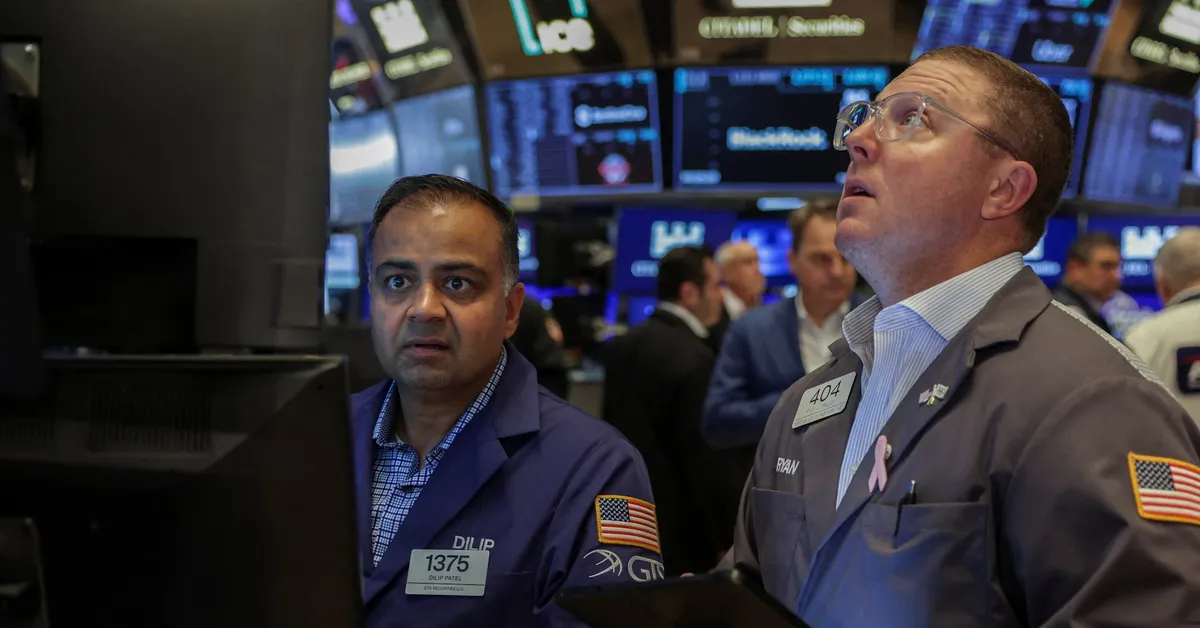
On July 17, 2023, the financial markets witnessed significant movements as both the S&P 500 and the Nasdaq Composite indexes closed at record highs. This surge was fueled by strong economic data and impressive earnings reports, demonstrating that American consumers remain willing to spend. The Nasdaq has notably ended at a record high in six of the previous seven sessions, while the S&P 500 has recorded its six best finishes since June 27.
According to preliminary data, the S&P 500 gained 35.32 points, or 0.56%, closing at 6,299.02 points. Meanwhile, the Nasdaq Composite rose by 157.25 points, or 0.76%, ending at 20,887.74. Additionally, the Dow Jones Industrial Average increased by 247.64 points, or 0.56%, to reach 44,502.42. These figures indicate a strong recovery for Wall Street, which had previously experienced a downturn following President Donald Trump's tariff announcements in early April.
This week has served as a crucial testing ground for the recent gains in the market, with several key economic reports and the commencement of the second-quarter earnings season. Anthony Saglimbene, Chief Market Strategist at Ameriprise Financial, commented, "Economic data and corporate earnings reports are showing that the economic backdrop is still pretty solid, enabling markets to grind higher this week with supportive data." This sentiment reinforces the notion that the economy is resilient despite challenges.
One of the standout reports was the sharp rebound in U.S. retail sales for June. This resurgence has renewed investor confidence, especially in light of mixed inflation data that revealed stagnant producer prices alongside a surge in consumer inflation. Investors have been particularly attentive to the implications of Trump's tariff policies on the U.S. economy, as the Federal Reserve has indicated a cautious approach to interest rate cuts until the impact of higher import taxes is clearer.
Amidst these developments, PepsiCo announced optimistic forecasts, driven by increased demand for energy drinks and healthier soda options. This positive outlook helped alleviate concerns regarding a potential decline in annual core profit. Shares of United Airlines also saw a rise as the carrier projected improved demand since early July, marking a bright spot in an industry grappling with budget cuts and trade tensions. Notably, competitors Delta and American Airlines also experienced gains in their stock prices.
The technology sector, particularly U.S. chipmakers, saw significant gains following a remarkable quarterly profit reported by TSMC (Taiwan Semiconductor Manufacturing Company), the leading producer of advanced AI chips. TSMC's results highlighted growing demand for artificial intelligence technology, further boosting investor confidence. Shares of TSMC, along with other major chip manufacturers like Marvell and Nvidia, experienced notable increases.
Saglimbene remarked on the positive implications of TSMC's earnings for the broader technology sector, stating, "Before we get all the Big Tech earnings in the next week or two, you're seeing the single source of production of those AI chips saying their demand is very strong." This positive outlook is setting the stage for upcoming earnings reports from major tech companies, reinforcing the leadership of technology stocks in the market's recent performance.
In summary, the financial markets are responding positively to strong economic indicators, robust corporate earnings, and heightened consumer spending. This environment suggests a favorable outlook for various sectors, particularly technology and consumer goods, as investors remain optimistic about the economy's resilience.